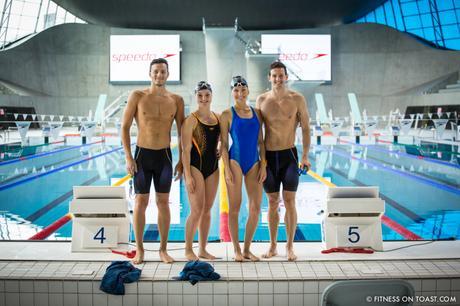
 Last weekend, I had the awesome opportunity to meet, interview, train and swim with four elite Team Speedo athletes; Michael Jamieson & James Guy (both pictured above, with me in the blue suit), plus Jazz Carlin and Siobhan O’Connor. It was part of a collaboration with Speedo to promote their #GetSpeedoFit campaign, which is all about inspiring people to swim more in pursuit of their full body workouts and healthy lifestyle; that’s something I fundamentally agree with, and I found the insights from these athletes to be absolutely fascinating. Click MORE to read my interviews along with a brief ‘Benefits of Swimming’, and to see some of our fun/goofy photos from the day at the London Olympic Aquatics Centre!
Last weekend, I had the awesome opportunity to meet, interview, train and swim with four elite Team Speedo athletes; Michael Jamieson & James Guy (both pictured above, with me in the blue suit), plus Jazz Carlin and Siobhan O’Connor. It was part of a collaboration with Speedo to promote their #GetSpeedoFit campaign, which is all about inspiring people to swim more in pursuit of their full body workouts and healthy lifestyle; that’s something I fundamentally agree with, and I found the insights from these athletes to be absolutely fascinating. Click MORE to read my interviews along with a brief ‘Benefits of Swimming’, and to see some of our fun/goofy photos from the day at the London Olympic Aquatics Centre!


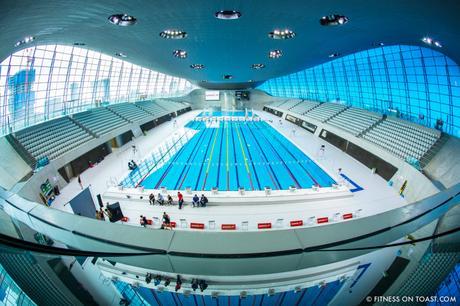

PART 1) BACKGROUND & BENEFITS:
You might have read some of my previous posts about swimming and its many benefits (a full body workout which improves circulation and lung capacity, can consume c. 500 calories per hour, offers natural resistance, is low impact on the joints, is relaxing for the mind and yields a fabulous endorphin release into the bloodstream!). I’ve found amongst my clients a common misperception that swimming isn’t an effective form of exercise, that it’s more for a relaxing paddle; I couldn’t disagree more. Now that summer is properly here, it’s typically the time I’ll swim more than usual – cooling off in the gym pool or splashing around in the holiday waves. If you want to get fit and stay fit for summer and beyond, this is a supreme form of exercise, whether you’re on holiday or at home; it’s incredibly tough to the uninitiated, but improving your swimming technique can make all the difference. When I was training for the Swimathon with Comic Relief, my coaches, a few tweaks here and there (and a lot of help from the BioFuse Power Paddles which are like little motors on your arms) helped me make massive progress.

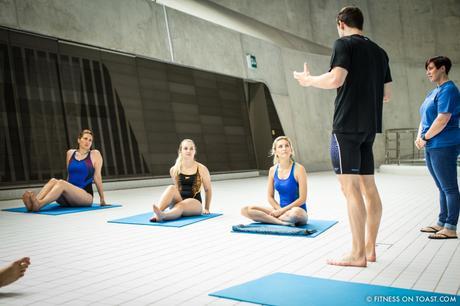
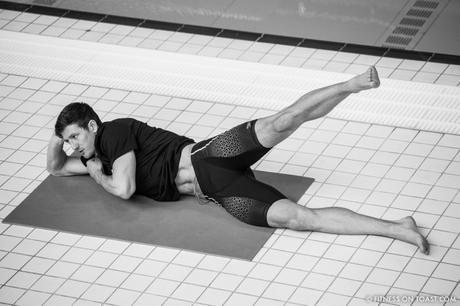
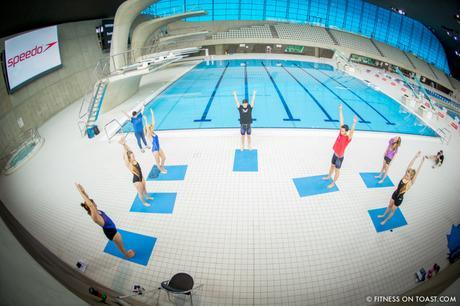
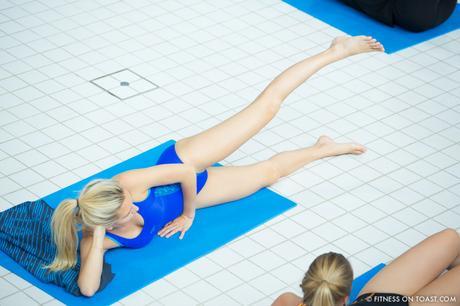

As per the above images, this session gave me the opportunity to warm up and train with the athletes, in the same way they do each day ahead of their own training sessions. My taskmasters were the following: Michael Jamieson (Olympic, World & Commonwealth breaststroke Silver medalist), Jazz Carlin (Commonwealth & European Championships Gold medalist), James Guy (Relay Gold and Commonwealth freestyle Bronze medalist), and Siobhan O’Connor (Gold 200m IM, Silver 200m freestyle, youngest swimmer on the London Olympic).
PART 2) THE INTERVIEWS
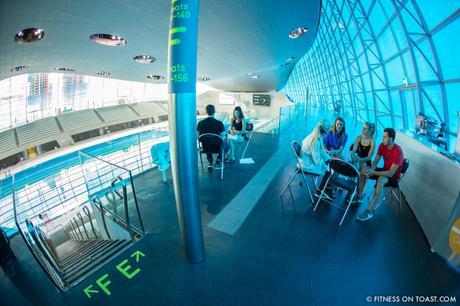

Jazz: Probably fins, it’s always feels good to put them on – it balances your stroke out a bit. You can focus on little things then, it makes you forget about your legs! It strengthens your legs a lot, we do a lot of fast training as well; if you’re going faster than you normally do it makes it feel great then when you take them off.
Siobhan: I would say fins as well – I quite enjoy putting my fins on, for a bit of resistance work, it emphasis your under water technique. Then I would say for technical work with your freestyle, paddles are really useful, basically they’re a really big surface area so it makes you properly think about the placement of your arms. If you’re slightly obscure, your paddle comes off or you’re not able to complete a proper stroke. So paddles are great to correct and guide your technique.
James: For me, I’d say the snorkel because it’s great for head position and neck alignment. You can practice keeping your head down, and focusing on that long neck when you’re doing you freestyle stroke. And for me, your goggles as well make all the difference – they’re so comfy and don’t let any water in – that’s why I like them personally.
Michael: It’s got to be the fins. I think they really help with the volume of training we do, as they take the pressure off the upper body, and you consequently swim a little bit faster. I think, for me as well being a little bit older, I need the help with the equipment; it mixes it up a bit as well and makes it a wee bit more exciting. We use our full equipment bag each session so that it really varies the training up as well. We do 10 sessions a week, 5-6kilometers a session and we use every piece of equipment in the bag each session! We usually do sets and reps of anything from 25-400/500meter reps. depending on the type of the session – so for example if it’s a speed session then sets and reps will be a lot shorter so maybe 15-25 meters all out efforts and that’s where we can really bring in the equipment.

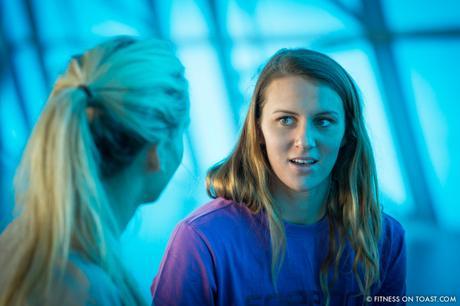

Michael: I’ve done it for so long now it’s kind of second nature now. I’ve been professional for 9/10 years now. It’s a long time to be involved in a sport but I absolutely love it and everyday you’re trying to find a new area that you can make an improvement on – in the water or on land in the gym. We do so many different types of training as well, and everything we do has a purpose – the focus is to try and transfer those improvements into the water – improve your swim speed and to get you ready for your major competition.


Michael: My week outside the pool will consist of 3 strength sessions in the gym, doing some Olympic lifts and strength training like that. I’ve got two soft tissue massage sessions weekly, to keep as fresh as possible. I’ll have some physiotherapy sessions which are really specific and are targeting any imbalances or weaknesses you have in the water. Also one or two self-kick sessions as well just for a fitness aspect to try and keep the weight off and try to keep in good condition! I do little bits of Crossfit pre season – September, October each year, as we usually tend to vary the training up a little bit. The volume in the pool is pretty low at that point so we spend a bit more time on land doing some Crossfit exercises, and I love it! It’s something I would actually quite like to get into when I finish swimming so watch this space!

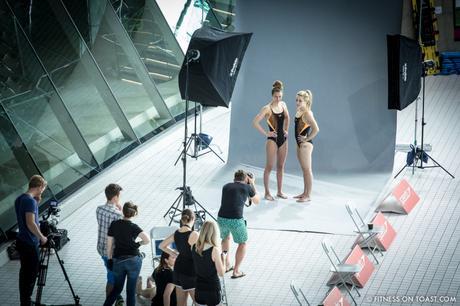

F.O.T: What does the average day look like in the run up to a big competition?
Michael: Just now is a good time actually because I’m about four weeks away from my major competition of the year. This past week has been my last hard week of full training before I start resting. I’m up at about 6:30 – that’s not too bad actually, on the poolside and we do circa 30 minutes of warming up and stretching exercises. Then we swim for two hours, have an hour physio after the swim session, about three of us rest between just to try and take on as much food and refuel as well as possible, and then in the afternoon it’s 90 minutes in the gym – strength based exercises and then two hours in the pool again. So it’s a pretty packed day! When that two-hour window in the morning and afternoon coincide with a real heavy week, I can do up to 8 km a session, and just now it’s down to about 5 / 5.5 km a session. Over the next 3-4weeks that will gradually decrease as we get ready for the biggest race of the year; I’ve got a month to go!

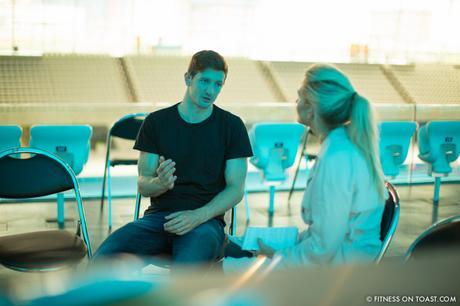


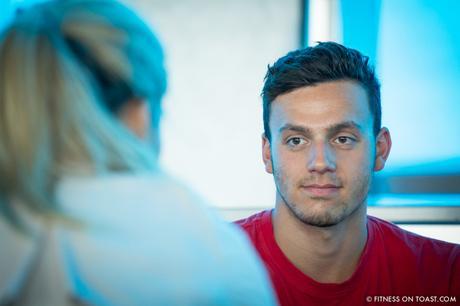



Michael: It’s always work. I think just because of the amount of training we do there really isn’t that much time to swim recreationally anyway. I think we’re doing around 30-35 hours a week of training. Perhaps ten years ago when I was starting to really ramp up my training, I think I would’ve chosen to go swimming recreationally but now it’s just performance in mind and it’s purely for work!



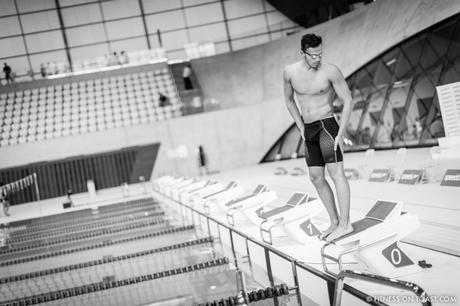


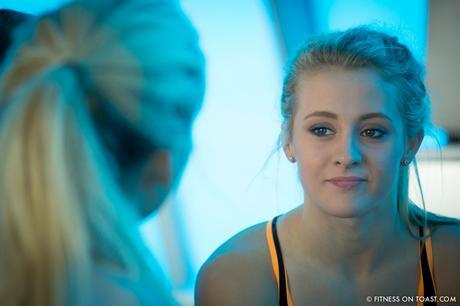


PART 3) THE RACING!
Unsurprisingly, I didn’t win – even though I slipped off the line slightly earlier than the professionals. But with relentless practice, voracious and balanced diet, multiple gym sessions daily, and little time for much else, I might fare better against these perfectly-tuned semi-aquatic athletic machines! I’ll definitely try harder next time. Thanks to all 4 of them for their patient tuition, honest responses and good fun :D

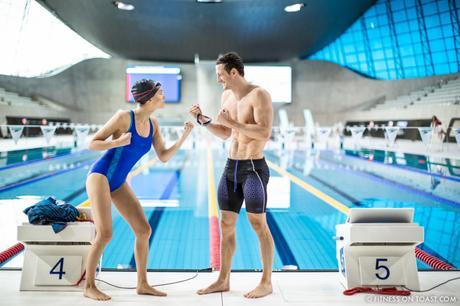
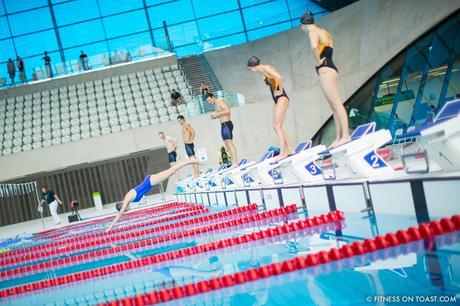
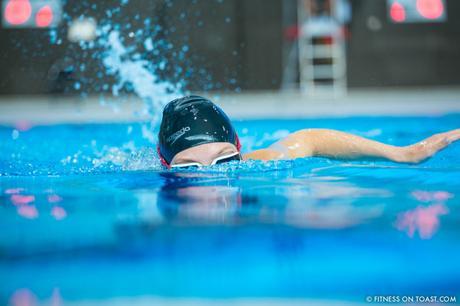
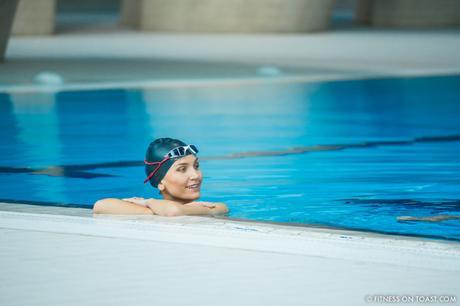
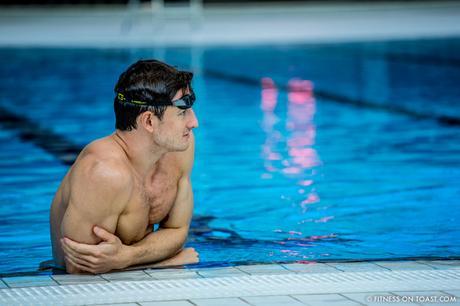
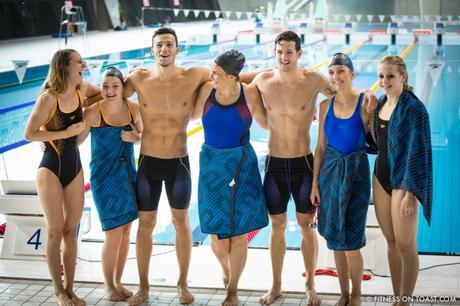
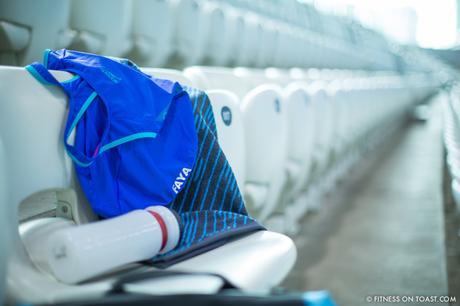
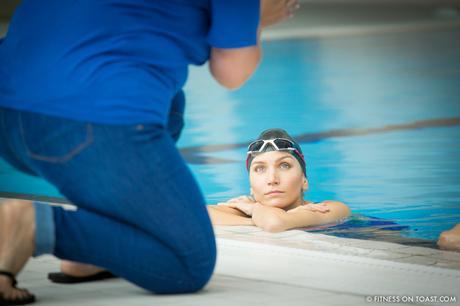
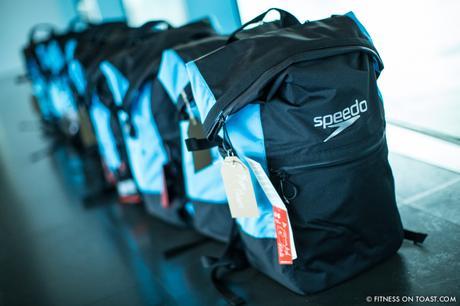
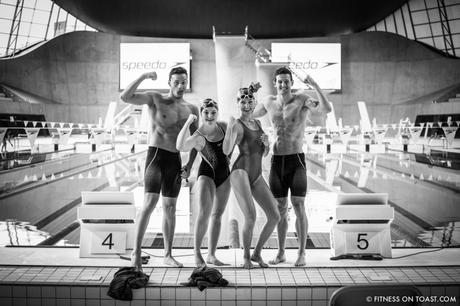


__________________________
YOU MIGHT ALSO LIKE:
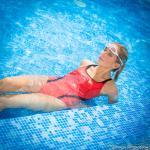
SPEEDO IN MOROCCO!

CHILLI CON QUORNE
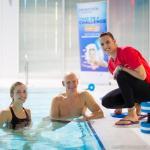
OLYMPIC SWIMMING!
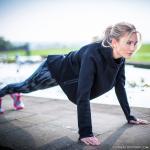
WHY TO PRESS UP?

